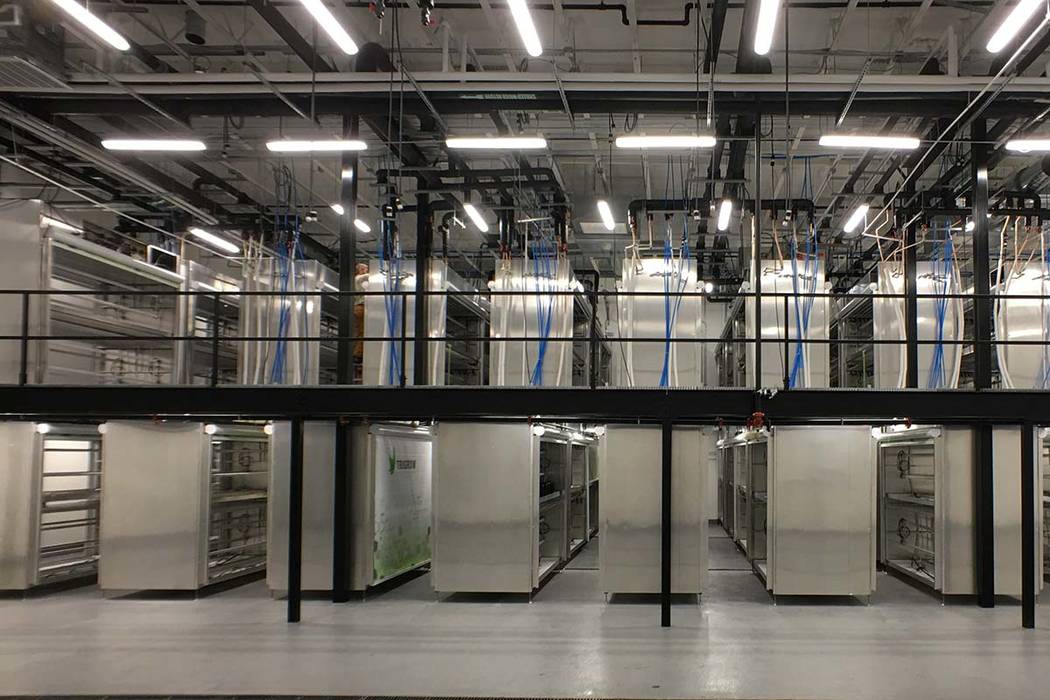TriGrow Systems’ exec aims to standardize cannabis cultivation
TriGrow Systems executives believe it’s high time the cannabis industry became more consistent.
The cannabis cultivation solution company’s hardware and software is meant to standardize and automate cultivation, according to the senior vice president of horticultural solutions, David Kessler. The company already has a 11,000-square-foot facility in Las Vegas that can hold nearly 7,000 plants.
“When a consumer or patient goes in and asks for Blue Dream strain, it might be one thing at one place and another somewhere else, and they’ll have different experiences,” Kessler said. “Our system is designed to allow a consistent delivery schedule and consistent quality of flower.”
This article was edited for length and clarity.
Why did you decide to start this company?
TriGrow came together over concerns we had in the cannabis industry. The No. 1 concern has been consistency. It (TriGrow) really solves the common issue in cannabis now between consistency and cost of production.We only came out of research and development mode last fall, all of this is happening quickly. Now, we have one facility in Las Vegas.
What’s the Las Vegas cannabis growers industry like?
I think Las Vegas, or Nevada as a whole, represents an amazing opportunity because they limit and restrict the licenses. In states like Oregon and Washington, licenses were easy to obtain. They gave more than 1,100 cultivation licenses out to mass producers and flooded the market. Now, the prices are artificially low. The price per gram or pound is really making it hard for growers to stay afloat.
In Nevada, you have a restricted licensing policy. It costs a lot more money to become involved, it was more regulated, and they have a higher price per pound. It’s more desirable for the opportunity to be working in Nevada because they’ll make more money.
What’s in store for the future of the Las Vegas cannabis industry?
I don’t have a crystal ball, but what I see happening is I see cultivators figuring out how to operate efficiently. As growers are expanding, the cost in all the markets does compress, they come down. It’s harder and harder for growers to compete, so it’s starting to squeeze growers out of the markets. We’ve seen this in Washington and Oregon. Over time, I think what will start to happen is better producers will have to address things like quality and consistency.
What’s the next step for your company?
I expect us to grow nationally and internationally. There’s a huge interest in Canada.
Contact Bailey Schulz at bschulz@reviewjournal.com or 702-383-0233. Follow @bailey_schulz on Twitter.
























